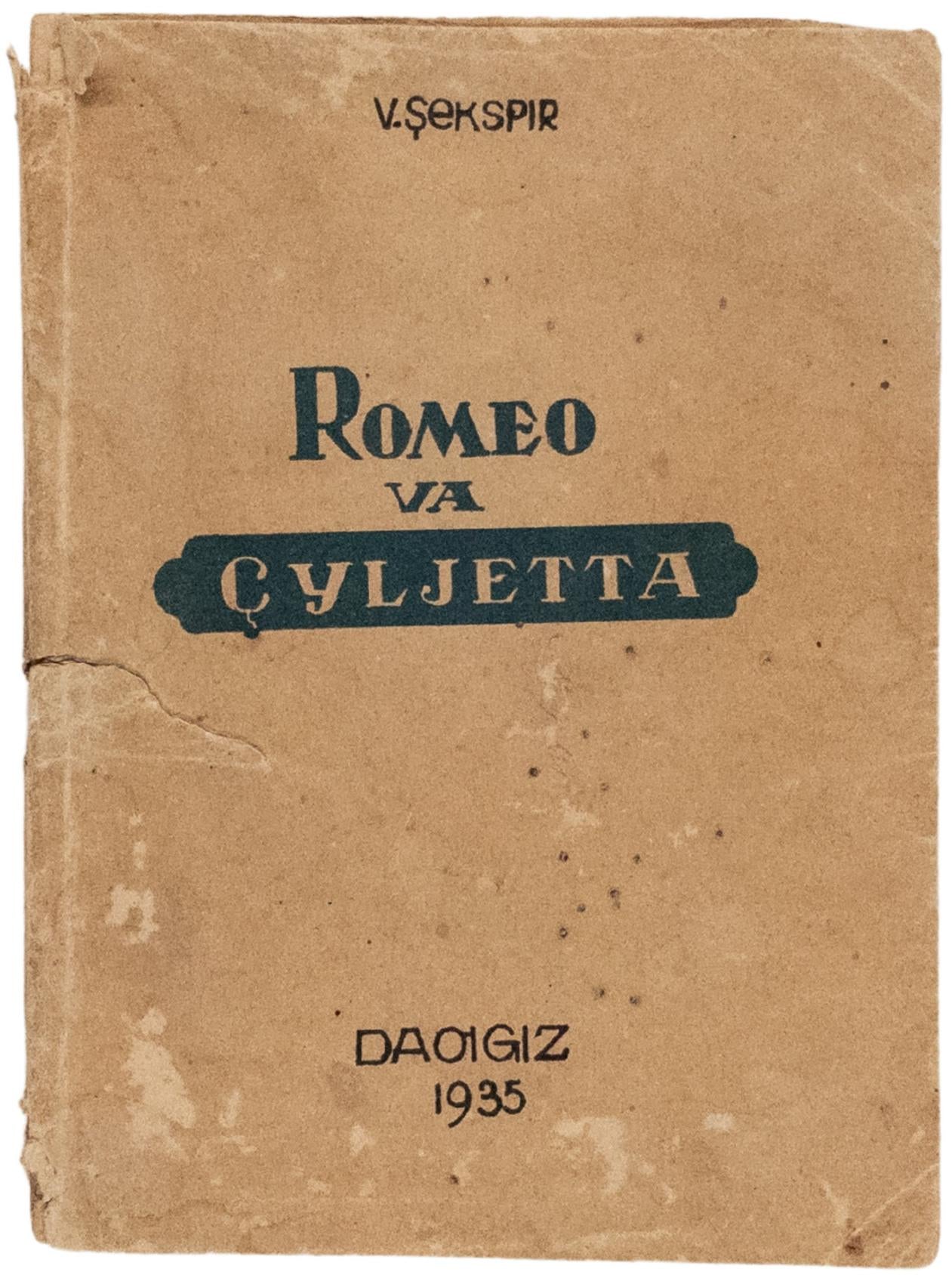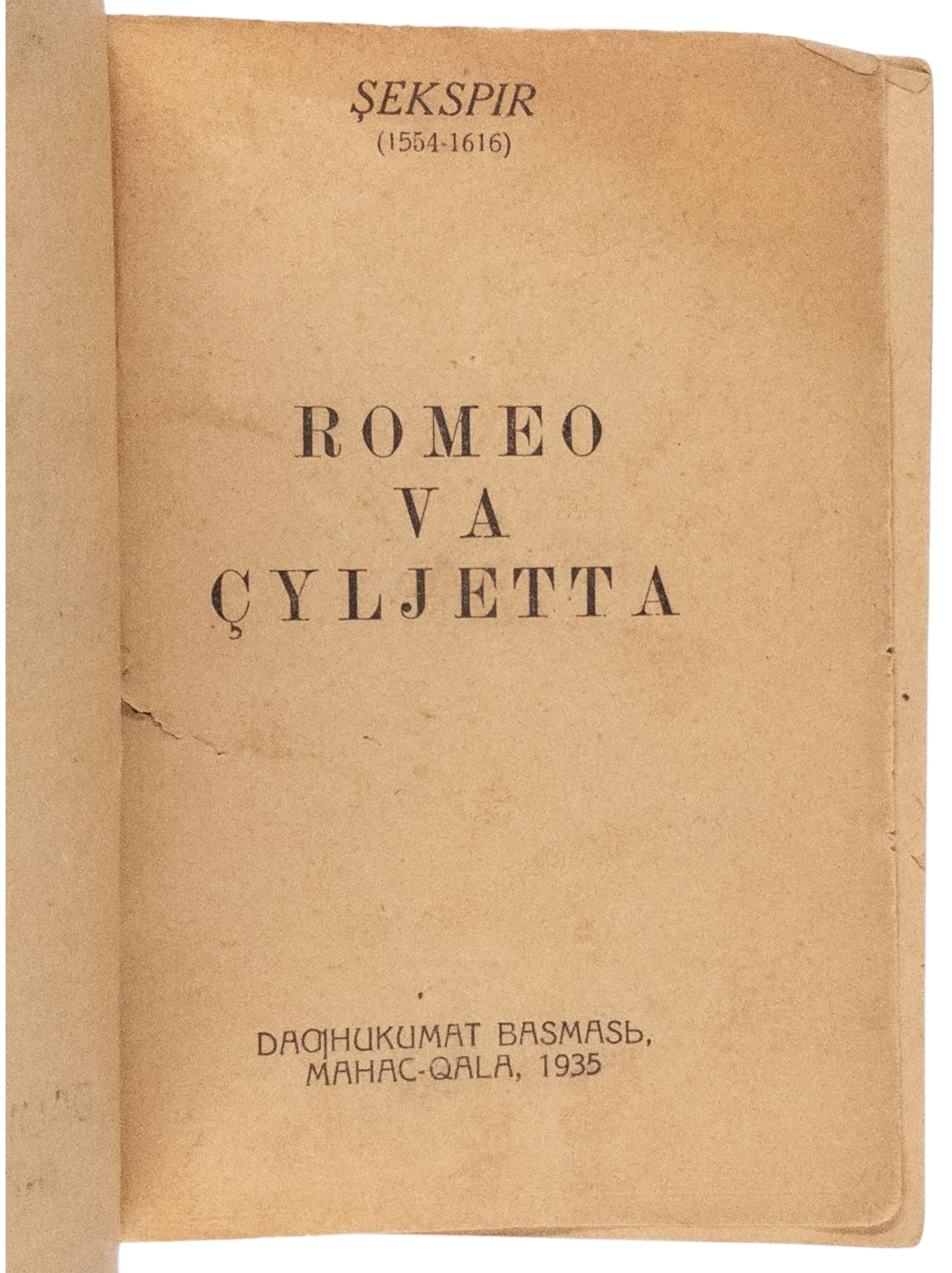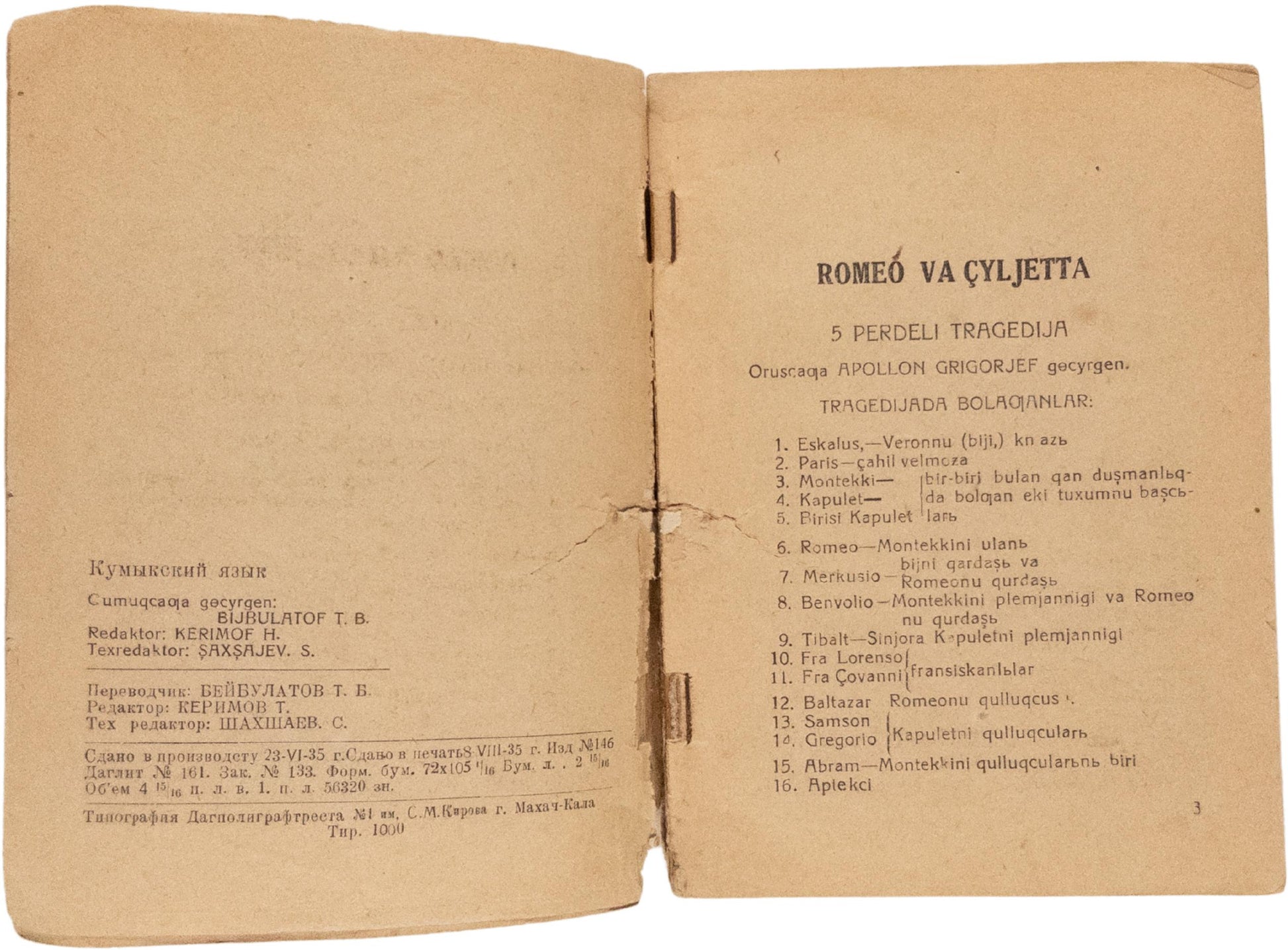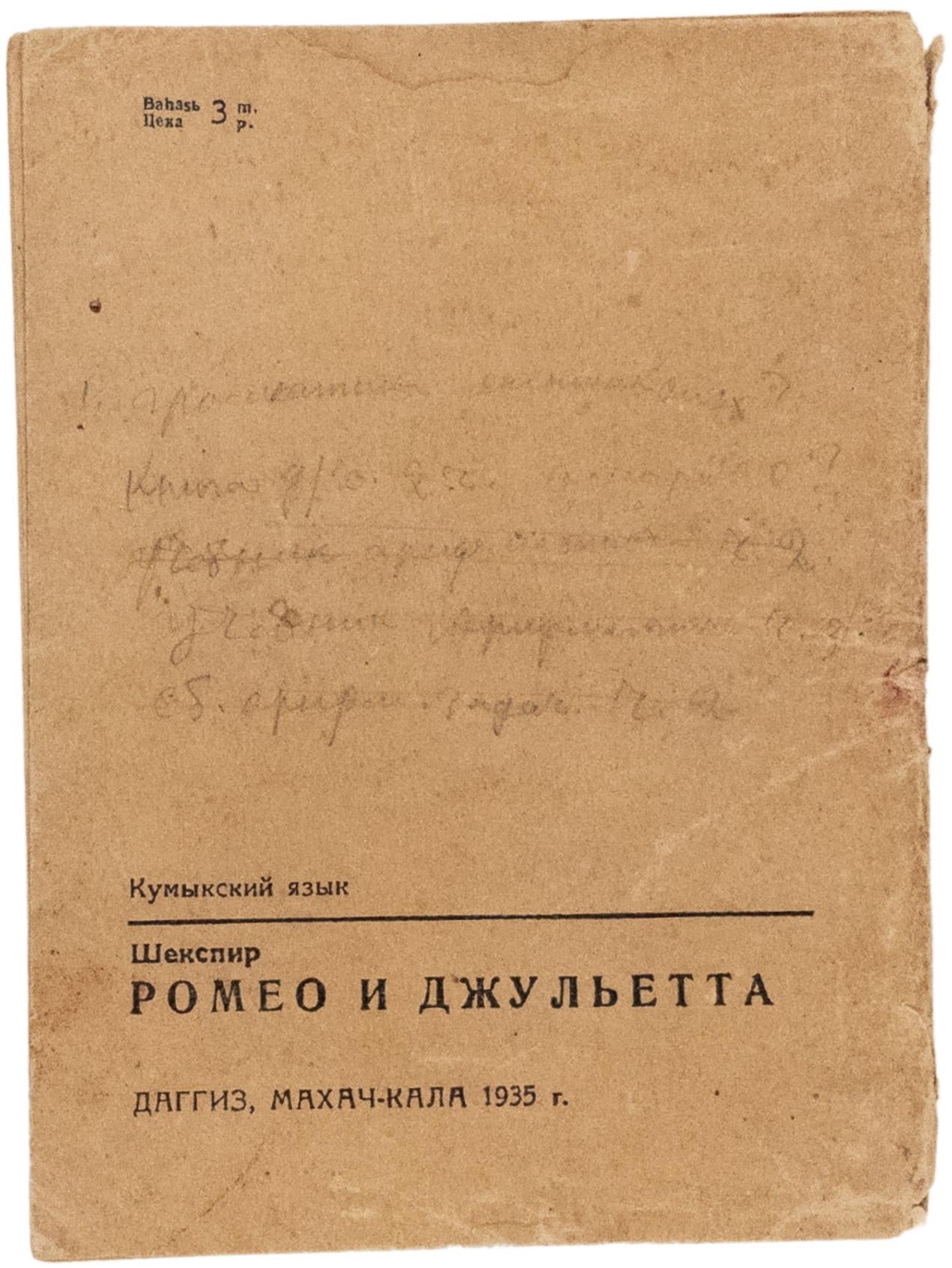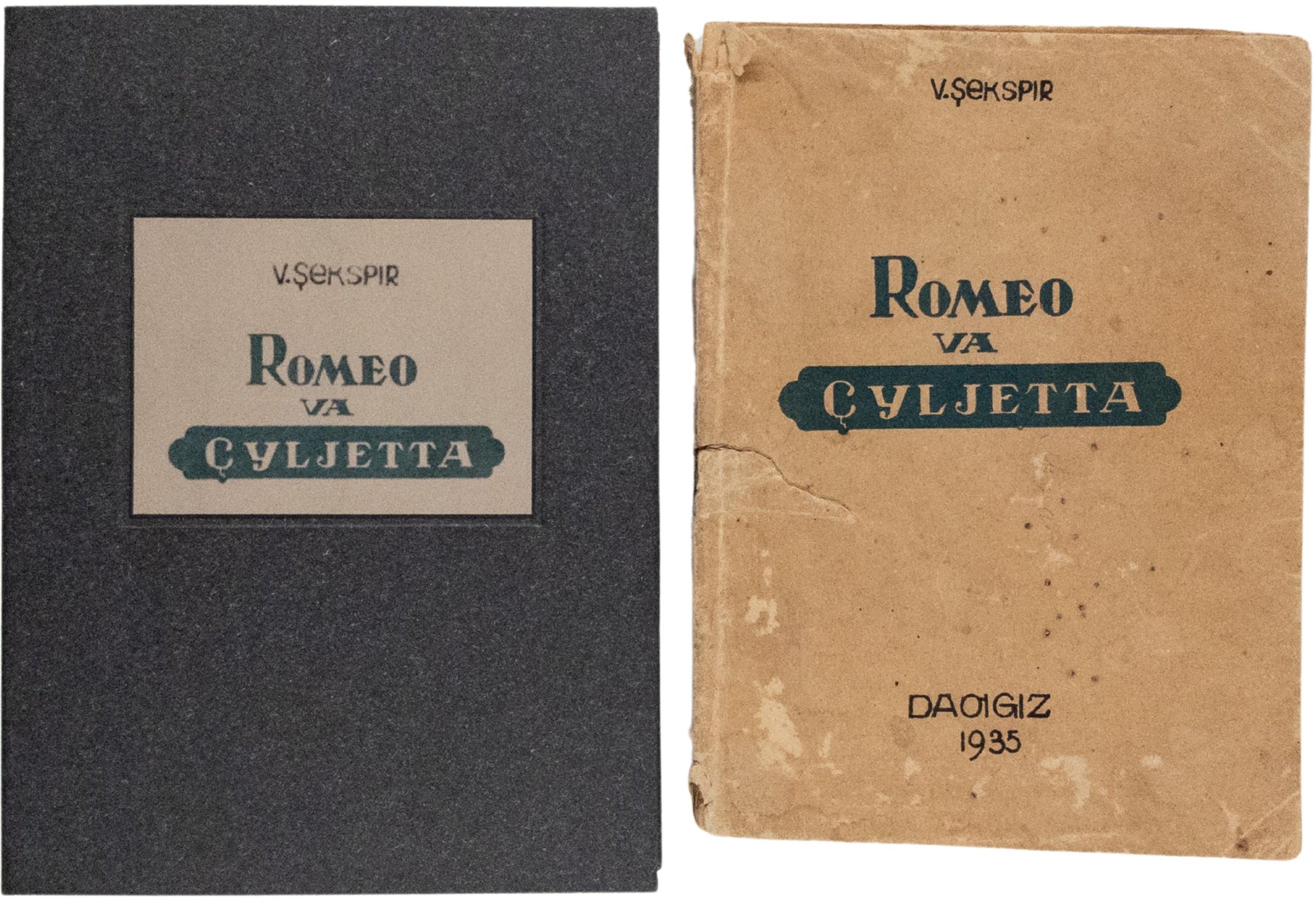Shakespeare, William
Romeo and Juliet. Shakespeare in lingua franca of the Northern Caucasus
Romeo and Juliet. Shakespeare in lingua franca of the Northern Caucasus
Couldn't load pickup availability
[Shakespeare, William] Şekspir, V. [Romeo and Juliet]. Romeo va Çyljetta.
Translation by T. Beibulatov.
Mahac-Qala [Makhachkala], Daqhukumat Basmasь, 1935.
12mo, 158 pp.
In original wrappers.
Near good condition only, rubbed and lightly soiled, losses to spine, tear from spine through entire book block, owner marks to back cover in pencil.
An extremely rare translation of 'Romeo and Juliet' into the Kumyk language. One of 1 000 copies published.
This extremely rare translation of Shakespeare’s 'Romeo and Juliet' was made into the Kumyk language—a Turkic language spoken primarily by the Kumyks in Dagestan, North Ossetia, and Chechnya. Kumyk also served as the lingua franca of the Northern Caucasus for centuries.
What makes this translation especially significant is that it was written in the Latin-based alphabet derived from Yañalif (the 'New Turkic Alphabet')—the first Latin script introduced during the Soviet Latinization campaign of the 1930s for Turkic languages. Prior to this, the Kumyk language had been written using the Arabic script. The Latinized form of Kumyk existed only briefly, from 1928 to 1938, before it was officially replaced by the Cyrillic alphabet as part of Soviet language policy—a script that remains the official alphabet for Kumyk to this day.
The translation was prepared by Temir-Bulat Beibulatov (1879–1942), a Kumyk poet, translator, folklorist, playwright, director, composer, and actor—an individual with a fascinating and complex life story. Following the 1917 Revolution, Beibulatov initially supported Dagestan's independence and wrote anti-Bolshevik works. He later joined the White Army and, in 1920, was imprisoned in a Soviet concentration camp for captured White Guards.
After his release and return to Dagestan, Beibulatov turned to cultural and educational work. He became a central figure in the founding of the State Kumyk Drama Theater in 1930, serving as its musical director and head of the literary department. He wrote plays and musical compositions, staged and performed in productions, acted in films, and was one of the founders of the Dagestan Song and Dance Ensemble.
As a translator, Beibulatov translated a wide range of works into Kumyk—including Russian classical poetry, folk and revolutionary songs, and even texts by Shakespeare (according to some sources, he also translated 'Othello'), Lope de Vega, and Harriet Beecher Stowe.
In 1940 Beibulatov was repressed and later died in a labor camp.
We couldn't trace any copy in OCLC or in Russian main libraries.






